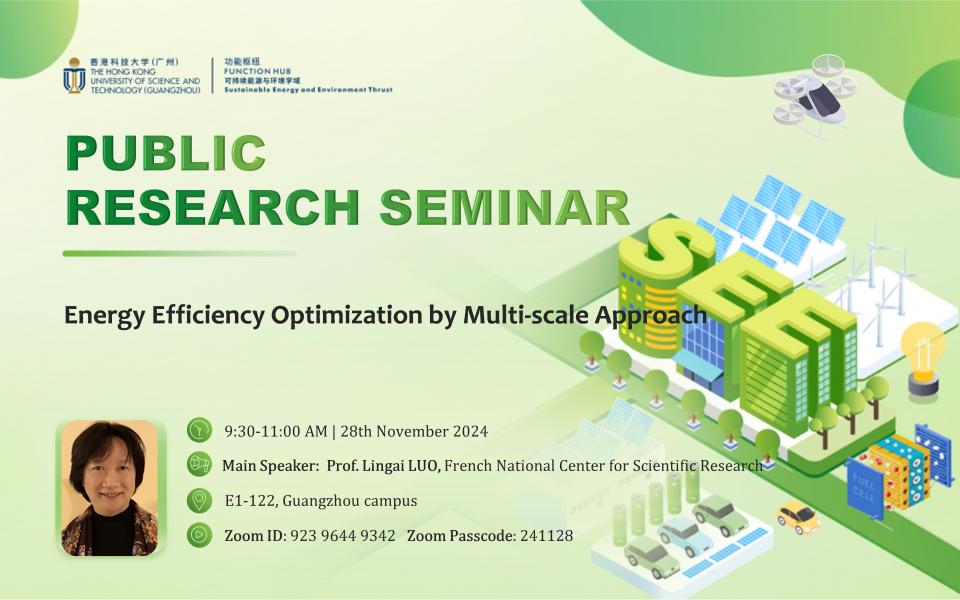Public Research Seminar by Sustainable Energy and Environment Thrust, HKUST(GZ) - Energy Efficiency Optimization by Multi-scale Approach
A strategy of multi-scale approach for energy efficiency optimization of processes is presented. To improve the global performance, intensification should necessarily be implemented at three scales: local scale, component scale and system scale. The internal links between these scales should be carefully examined for performance maximization with minimization of dissipations.
At the system scale, the optimization objective is to have a maximum efficiency with constraints. The problem consists in designing compact, integrated and multifunctional systems. At the component scale, optimization aims at maximizing its performance through innovative design. At the local scale, the intensification of heat and material transfers at interfaces, the control of transfer mechanisms and the minimization of dissipation are at the heart of the problem. So the problems of these three scales are coupled. An energy system consists of a set of fluidic, thermal and reactive components. The optimization of the efficiency of a system depends on a global approach of analysis and action on the quantity and also on the quality of the energy involved in the system on the one hand, and on the optimization of the performances of each component and of each step on the other hand. In a multi-scale system, the global optimum is not necessarily the combination of the optima of the components taken separately. There is a real problem in these changes of scale where we must distinguish between design optima and operating optima. In any case, the optimal performance of the components depends in turn on the control of heat and mass transfer phenomena, as well as on the flow at the local scale. Furthermore for the scale transition, structural, functional and temporal synergistic effects have to be carefully considered and optimized by appropriate scaling laws.
Pr. Lingai LUO is Exceptional Class Research Director (ECRD) of French National Center for Scientific Research (CNRS), Laboratoire de Thermique et Energie de Nantes (LTEN-CNRS UMR6607), France. She was Direction member of LTEN and the director of LOCIE, both Laboratories of CNRS. She was the cofounder and coordinator of Sino-French Collaboratory for Environmental and Process Engineering and the director of its successor Sino-French Laboratory for Sustainable Energy of French CNRS and Chinese Academy of Sciences. She proposed a multi-scale approach for energy efficiency optimization of processes. To improve the global performance, intensification should necessarily be implemented at three scales: local scale, component scale and system scale. The internal links between these scales should be carefully examined for performance maximization with minimization of dissipations. She developed an innovative strategy for optimized management of fluid which aims to establish a new fluid distribution optimization strategy in fluidic, thermal and reactive devices, as well as in their integration into multifunctional and multi-scale systems. She has been the author or editor of 4 books and over 160 journal articles. She is serving as subject editor of Energy Journal, and associate editor of three others Journals.
For inquiries, please contact Miss Suggi WU (+86-20-88332966, suggilswu@hkust-gz.edu.cn)
